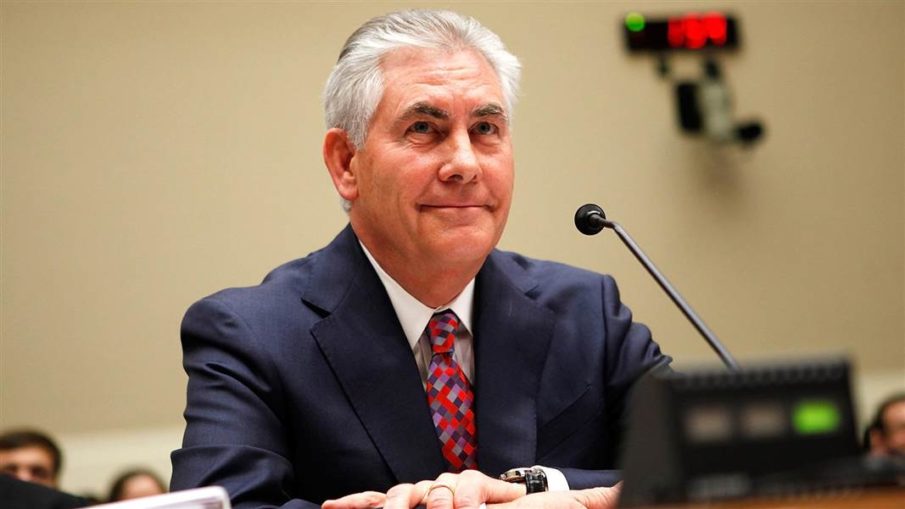With tensions at a seemingly continuous rise on the Korean peninsula, both the United States and North Korea have sent one another messages in the forms of military exercises, missile tests, interceptor tests, and steely glares from across the 2.5-mile gap between the two Korean states. This Sunday, however, they’ll be able to communicate far more directly; from across a table.
U.S. Secretary of State Rex Tillerson will be in the Philippines this Sunday for the annual Association of Southeastern Asian Nations’ (ASEAN) Regional Forum. The ASEAN forum offers the 27 involved countries a place to participate in a multilateral dialogue regarding security and other issues facing the region. Also scheduled to be in attendance will be Ri Yong Ho, North Korea’s top diplomat.
We have reaffirmed our position toward North Korea,” Mr. Tillerson told reporters. “We do not seek a regime change, we do not seek the collapse of the regime, we do not seek an accelerated reunification of the peninsula, we do not seek an excuse to send our military north of the 38th parallel,” which divides North and South Korea, Tillerson said in a statement on Wednesday.
“And we’re trying to convey to the North Koreans: We are not your enemy, we are not your threat,” he said. “But you are presenting an unacceptable threat to us, and we have to respond.”
This statement runs counter to the impression some had of statements made by CIA Director, Mike Pompeo, who told the crowd at last month’s Aspen Security Forum that “It would be a great thing to denuclearize the peninsula, to get those weapons off of that, but the thing that is most dangerous about it is the character who holds the control over them today.”
Pompeo went on to claim the North Korean people would likely welcome a change in regime, which prompted a slurry of North Korean threats suggesting that they would respond to any American-led attempts to remove Kim from power by launching a nuclear assault on the mainland United States.
Despite Tillerson’s rare opportunity to directly convey U.S. interests to the North Korean representative, however, there are currently no plans for the two dignitaries to participate in talks during the event, in what seems like a missed strategic opportunity.
“There’s not going to be a huge sitdown. There may be third-party intermediaries to try to relay messages back,” said Rodger Baker, the vice president of strategic analysis at Stratfor, a U.S.-based think tank.
The decision not to pursue a meeting during the forum may be because of North Korea’s two recent ICBM tests, which demonstrated a greater range capability than previously assessed by American experts. Despite the apparent failure of the re-entry vehicle in North Korea’s most recent test, the reclusive state still touts its recent launches as significant victories, placing them in the position to believe they currently hold the upper hand in any potential negotiations.
You look at the way they’ve been shaping rhetoric recently and it’s almost toying with the US a little bit,” Baker said. “From their perspective, the US in a year or two (once they develop more missiles) is going to have to sit down and just engage with North Korea as a peer-to-peer state.”
It is important to note, however, that just because there isn’t currently a scheduled sit-down between the two nation’s representatives — doesn’t mean one won’t occur. It is not entirely uncommon for meetings of top-level officials to go unannounced before they commence, either because they are decided upon suddenly, or because they’re simply not advertised to the public beforehand.
Already have an account? Sign In
Two ways to continue to read this article.
Subscribe
$1.99
every 4 weeks
- Unlimited access to all articles
- Support independent journalism
- Ad-free reading experience
Subscribe Now
Recurring Monthly. Cancel Anytime.










COMMENTS